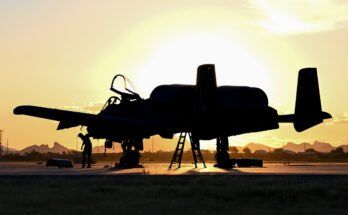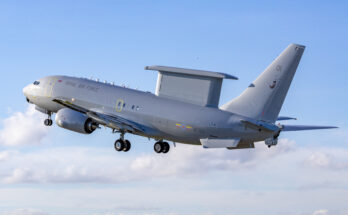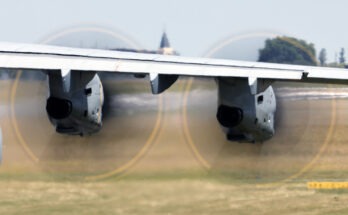The first Ka-52 helicopters for delivery to Egypt appear to have taken flight, as revealed by unverified images shared on social media.
Following confirmation that Russian Helicopters had built the first Ka-52s for delivery to Egypt (reported by W4T in January), images emerged showing unpainted helicopters reportedly for Egypt undergoing flight testing.
Hammer Head shared two photos of Ka-52 helicopters in flight, as well as an image from inside the factory where they are being produced.
First picture of the Egyptian Air Force Helicopter Ka-52 Aligator test flight , May 2017 pic.twitter.com/LEvQ3RWNT1— Hammer Head (@KitadicaCool) May 5, 2017
another one pic.twitter.com/YVKdGdbrZ9— Hammer Head (@KitadicaCool) May 5, 2017
Inside the factory pic.twitter.com/xnVWhZu3JZ— Hammer Head (@KitadicaCool) May 5, 2017
Russia sold 46 Ka-52s to Egypt in recent years. Deliveries of the helicopters are due to begin this year and last through 2019.
Though likely to be the naval variant — Ka-52K — for use on board Egypt’s new Mistral helicopter carriers, Russian Helicopters CEO Andrey Boginsky suggested earlier on May 5, 2017 that a contract for Ka-52Ks had not yet been completed.
Tass News Agency quoted Boginsky as saying to reporters, “The tender procedure is at the final stage. I believe that we’ll learn about the result of this tender during May. Of course, we understand that our hardware is better than its foreign rivals by performance characteristics.”
He was reported to have been speaking directly about a Ka-52K sale to Egypt.
According to Tass he added that Rosoboronexport, Russia’s arms import and export intermediary, will negotiate the price of a deal in late May.
It is unclear if Boginsky referred to a separate deal for Ka-52Ks or if Egypt was looking to modify the original contract to have some of the included models be Ka-52Ks. Boginsky confirmed that the first deliveries to Egypt would be conducted this summer.
UPDATE: This post was updated to reflect the date deliveries of Ka-52s are expected to start and add additional commentary regarding the Ka-52K sale.
Military markets analyst, covering Eurasia, Middle East, and Africa.




